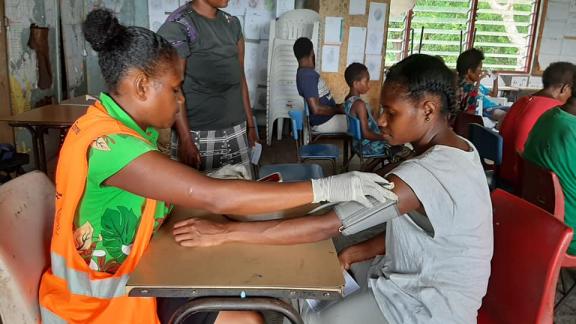In a monumental step forward, Thailand's Senate passed the Marriage Equality Bill, making it the first Southeast Asian country to recognise same-sex marriage. The upper house approved the bill with 130 votes in favour, four against, and 18 abstentions out of 152 members present, indicating overwhelming support.
The bill now awaits King Maha Vajiralongkorn's endorsement before it becomes law. It will take effect 120 days after being published in the Royal Gazette. This legislation seeks to amend the Civil and Commercial Code, redefining marriage from "a man and a woman" to "two individuals" and updating legal terms from "husband and wife" to "married couple."
This legislative shift will enable Thailand to recognise the marriages of partners of any gender aged 18 and older, extending comprehensive rights that include inheritance, equal access to various tax savings, and eligibility for adoption rights, ensuring a broad spectrum of legal equality and protection. With this development, Thailand will become the third Asian country to embrace marriage equality, joining Taiwan (2019) and Nepal (2023).
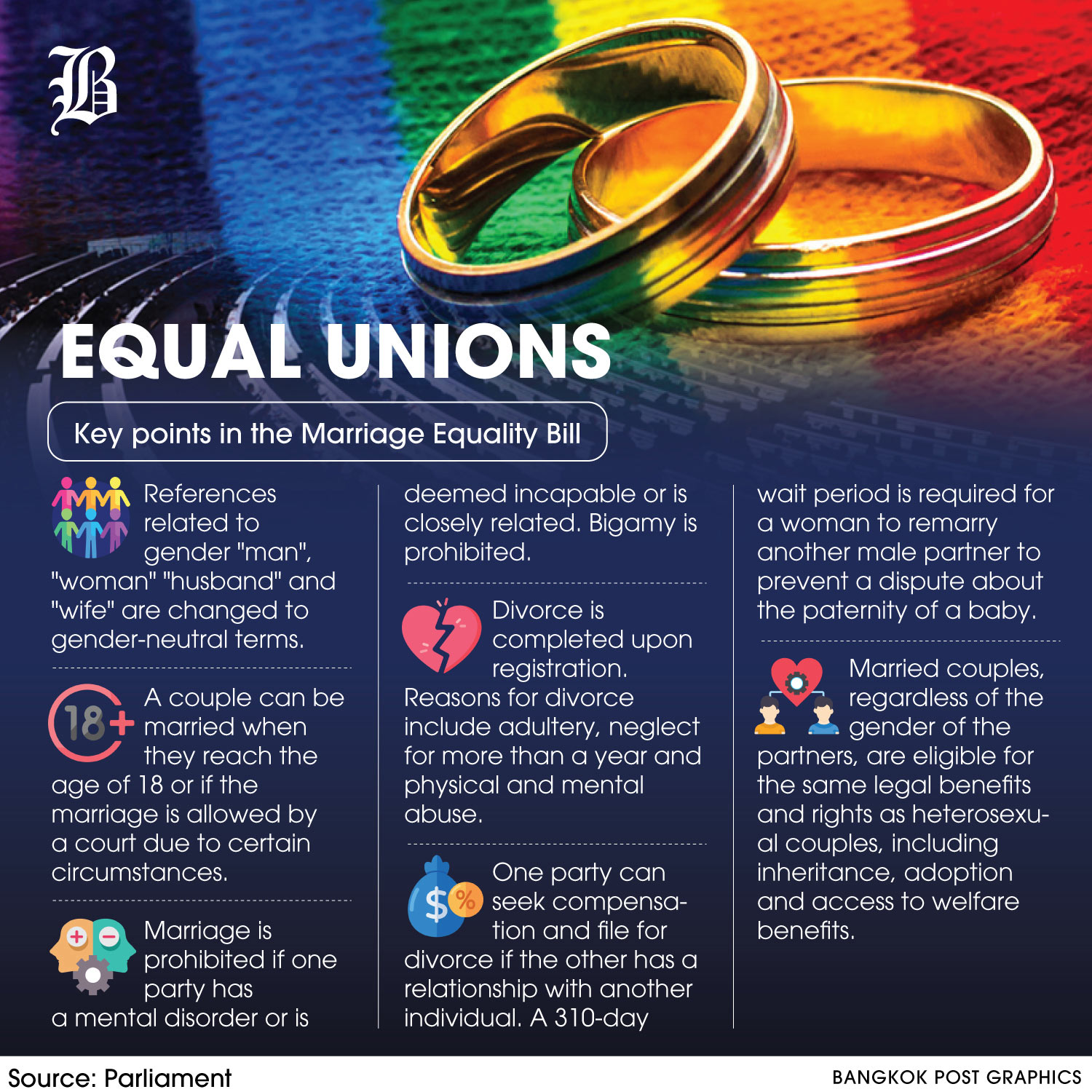
The right to marry and form a family is enshrined in Article 23 of the International Covenant on Civil and Political Rights, which Thailand ratified in 1996. Various human rights organisations have affirmed that the concept of "family" in international human rights law does not need to adhere to a single model.
Our Member Association, the Planned Parenthood Association of Thailand (PPAT), has been pivotal in advocating for this milestone for over a decade. Collaborating with partners such as the Equal Marriage Law Committee, the National Youth Council, the Department of Rights, Liberties & Protection, and the Rainbow Sky Association of Thailand (RSAT), PPAT has tirelessly championed this cause. In exclusive interviews, representatives from these organisations discuss the landmark decision's societal and legal impacts and the challenges ahead.
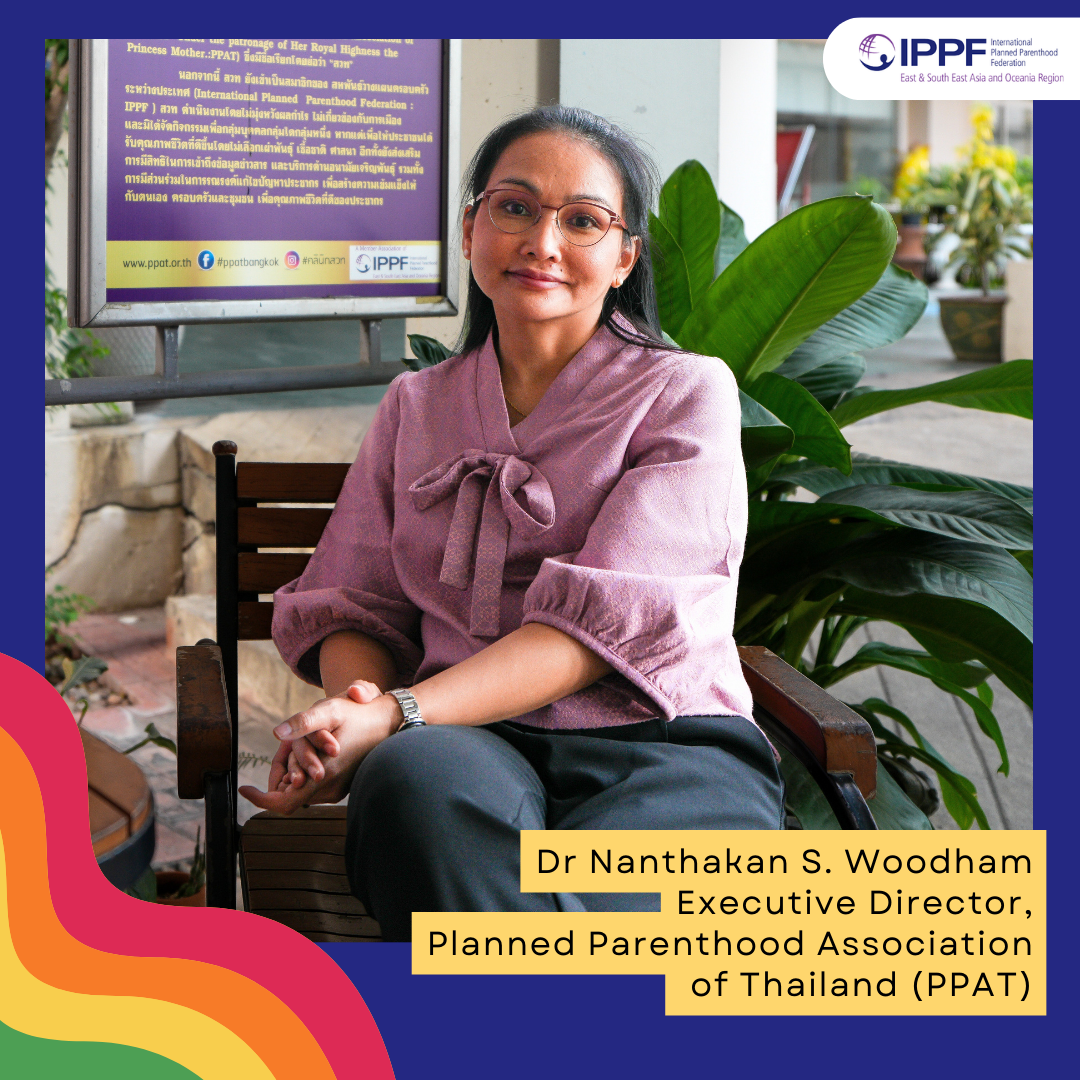
Transforming Access: PPAT's Comprehensive Approach to SRHR
“PPAT has always been at the forefront of this advocacy, implementing projects to raise awareness about gender equality and providing sexual and reproductive health (SRH) services to all, with a special focus on the LGBTQIA+ community. Efforts include engaging lawmakers, participating in public hearings, and utilising platforms to raise public awareness, reaching thousands of young people,” said Dr. Nanthakan S. Woodham, Executive Director of the Planned Parenthood Association of Thailand (PPAT).
PPAT’s active involvement in the marriage equality bill’s technical committee since 2018 underscores their commitment to focusing on grassroots initiatives and reaching remote areas in Thailand. This effort brought services and awareness to marginalised communities, ensuring necessary care, information, and mass base support.
Additionally, PPAT worked extensively with youth, educating them about their sexual and reproductive health and rights (SRHR) through the Ministry of Social Development and Human Security. Collaborating with civil society organisations and the Ministry of Public Health, they addressed SRHR at multiple levels. Over the past three years (2021-2023), PPAT provided clinical SRH services to an average of 50,360 clients annually through static and mobile clinics and outreach services, demonstrating their initiatives' extensive reach and impact.
Providing accurate information and SRH services to those excluded due to nationality or immigration status, such as refugees and migrant workers, is essential. “Equal care and support for these groups are necessary. Societal shifts and equitable healthcare access must complement legislative changes to pave the way for a more inclusive and equitable future,” Dr Nanthakan S. Woodham emphasised.
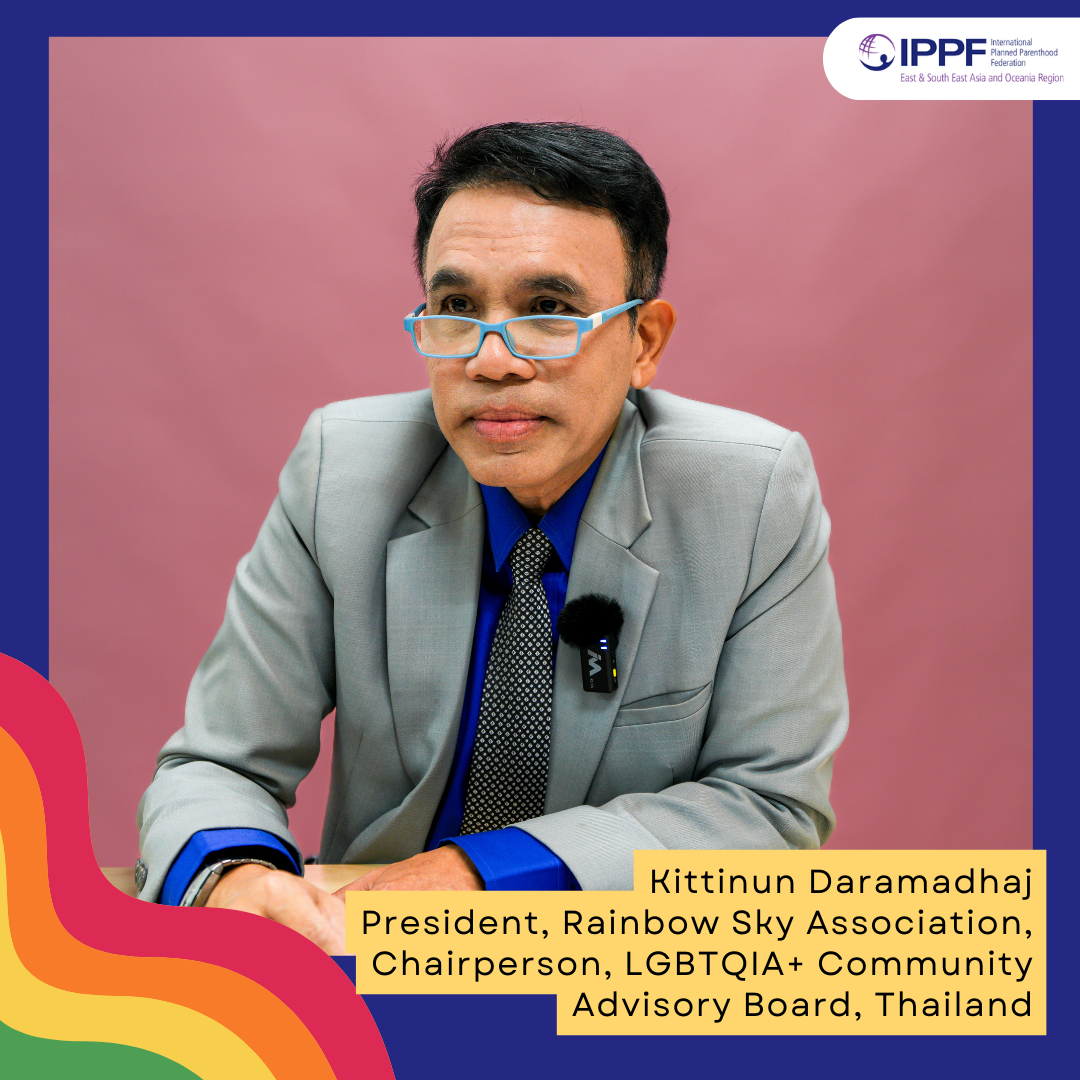
Key Populations in Focus: A Cross-Sectional Approach
“Ending discrimination and protecting LGBTQIA+ rights demand tackling cross-sectional issues: sexual and reproductive rights, social security, and health system reforms,” says Kittinun Daramadhaj, President of the Rainbow Sky Association of Thailand (RSAT) and Chairperson of the LGBTQIA+ Community Advisory Board in Thailand. This comprehensive approach is vital for creating an inclusive society where everyone can thrive.
He added that close collaboration with the Planned Parenthood Association of Thailand (PPAT) ensures that vulnerable groups, including LGBTQIA+ individuals, have access to critical healthcare services. Sustainable progress beyond legislation is essential, particularly in advocating for and supporting sex workers, who often face heightened marginalisation and barriers to healthcare.
Sex workers in Thailand face fines and imprisonment under the Prevention and Suppression of Prostitution Act of 1996. This absence of legal protection, coupled with stigma and violence, prevents them from reporting abuse or seeking justice, leaving them vulnerable and unable to access essential healthcare services.
RSAT is dedicated to advocating for the full rights and equality of LGBTQIA+ communities. Their work is crucial in HIV prevention and treatment programs, especially given the high prevalence rates: 1% among sex workers, 8% among people who use drugs, 11% among transgender women, and 12% among men who have sex with men. RSAT’s efforts are vital in reaching and supporting these key populations affected by HIV.
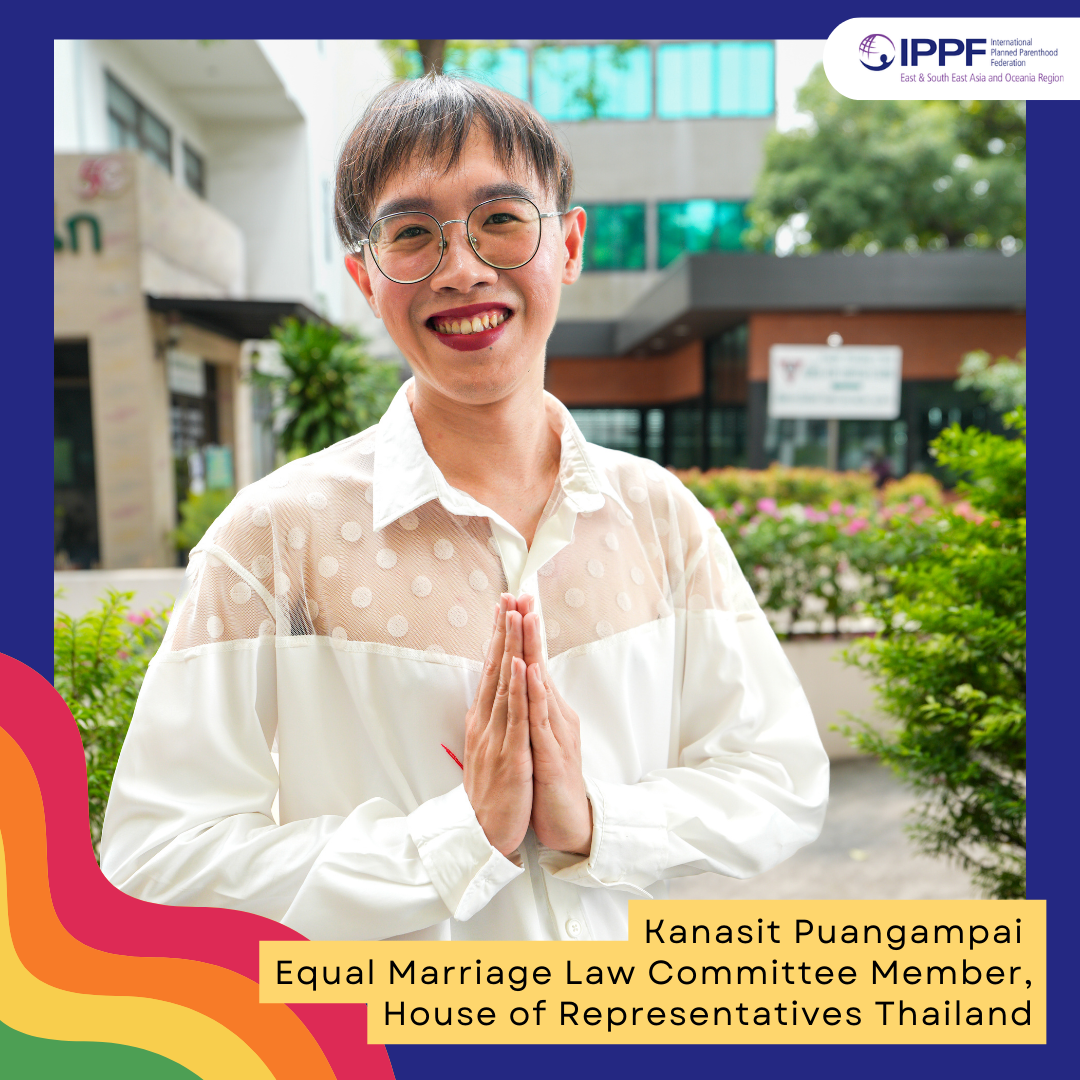
Mapping Progress: Equal Marriage Law Committee
"This legislative shift marks a significant step for Thai society in promoting equal rights by enabling the recognition of marriages between partners of any gender aged 18 and older. It extends comprehensive rights, including inheritance and adoption eligibility, ensuring broad legal equality and protection, paving the way for a more inclusive future for all,” says Kanasit Puangampai, a member of the Equal Marriage Law Committee, House of Representatives Thailand.
The parliamentary committee undertook extensive consultations and held numerous sessions to consolidate draft bills into a comprehensive Marriage Equality Bill. This collaborative approach aimed to provide equal legal recognition and protection for all citizens, regardless of gender or sexual orientation.
Thailand's journey toward marriage equality has been long and arduous, spanning over a decade. This significant legislation faced numerous setbacks, primarily due to political upheaval and debates over the best approaches and specific provisions to be included in the bill. Despite these challenges, the relentless efforts of advocates and supporters have finally led to its passage.
In 2020, the Constitutional Court upheld the existing marriage law, which recognised only heterosexual unions, but recommended expanding it to protect the rights of all genders. This crucial recommendation laid the groundwork for developing the marriage equality bill.

Advancing Human Rights: Marriage Equality and Anti-Discrimination
“We conducted extensive studies on the legal aspects, drawing from international examples. Our approach included raising awareness nationwide through local and regional consultations. The draft law received public comments online, and we received multiple rounds of civil society feedback before submitting a comprehensive summary to the parliamentary committee,” says Nareeluc Pairchaiyapoom, Director of the International Human Rights Division, Department of Rights & Liberties Protection, Ministry of Justice, Thailand.
The push for same-sex marriage rights in Thailand gained significant attention in 2012 when a same-sex couple in Chiang Mai, known for their LGBTQIA+ advocacy, attempted to register their marriage. The registrar rejected their application, citing the lack of legal recognition for same-sex marriages in Thai law. This sparked widespread discussion and led the couple to petition several government agencies, initiating legal reforms aimed at securing marriage rights for same-sex couples.
Initially, efforts focused on a civil union bill, separate from the marriage equality bill. Observing similar movements in other countries where civil unions served as a step toward full marriage equality, the Human Rights Division adapted its strategy accordingly.
Building on this momentum, Nareeluc Pairchaiyapoom explained, “Our next steps include pushing for an anti-discrimination bill to eliminate all forms of discrimination, including those based on gender, disability, and ethnicity. With significant input from civil society, this will ensure that the fight for equal rights continues and advances the progress made with the marriage equality bill.”
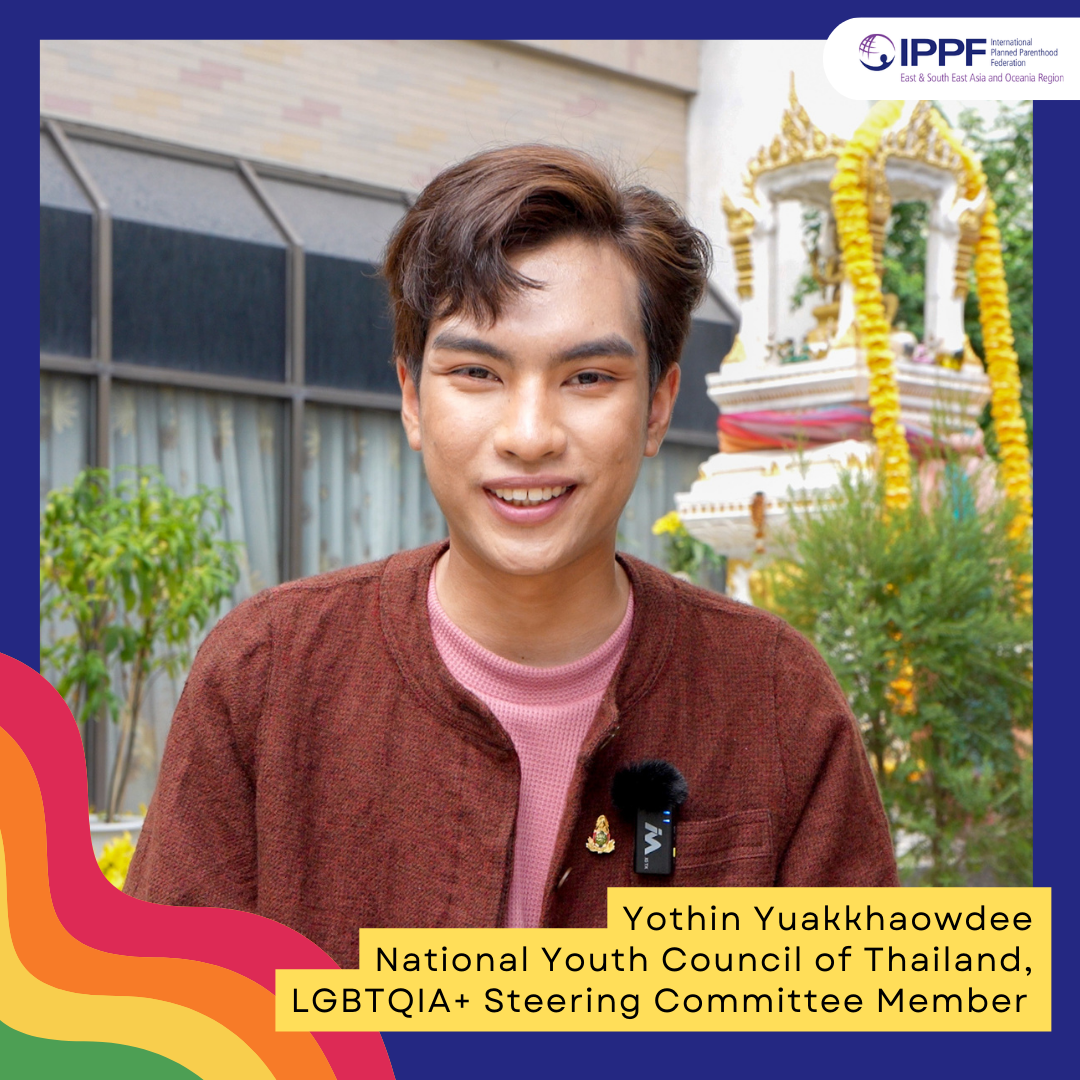
Empowering LGBTQIA+ Youth: Legal Reforms and Health Access
"This landmark moment celebrates the tireless work of activists. Moving forward, it's crucial to ensure LGBTQIA+ youth, especially those in hard-to-reach areas, have equal access to health services and prioritise comprehensive sexuality education (CSE), empowering a generation that embraces diversity and inclusion," emphasised Yothin Yuakkhaowdee, a youth activist.
According to a new national survey by the United Nations Development Programme (UNDP), while there are generally favourable attitudes towards LGBTIQA+ people in Thailand, many still face persistent experiences of stigma, discrimination, violence, and exclusion.

"We collaborate on grassroots projects to facilitate LGBTQIA+ youth access to essential sexual and reproductive health services. Legalising same-sex marriage will enhance social acceptance and visibility, reducing stigma and discrimination to foster a more inclusive society," noted Nada Binrorheem, President of the National Youth Council of Thailand.
The impact on youth is profound. Improved access to sexual and reproductive health services empowers young people to make informed decisions about their health, ensuring they can lead healthy and fulfilling lives.
Read our press statement: IPPF ESEAOR Welcomes Thailand's Historic Step Towards Marriage Equality in Southeast Asia.
Our social media series, Voices of Progress can be accessed HERE
For more information, contact:
Malarvili Meganathan,
Regional Communications, Voice & Media Advisor,
[email protected]>
Photo Credits: Florence Lee/IPPF ESEAOR/Bangkok, Thailand
when









